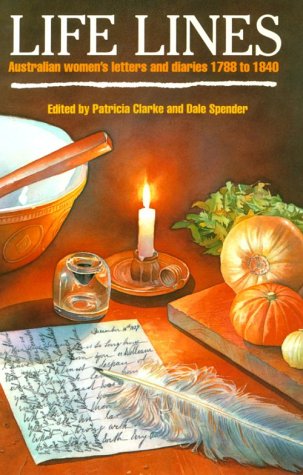Women did not always travel willingly to colonial Australia and whether they wanted to or not, they had to work. Isolated from family and friends and from all that was familiar, confronted with difficulties and dangers, life for them was often hard and painful. But there were always letters and journals to turn to. It is surprising just how many women were literate; no doubt the compelling need to write made a difference. It is also surprising just how much they wrote. Despite all the demands they had to meet, women made the time to write lengthy letters to those back home. they wrote to keep in touch, to place orders for goods they required, and to report on what was happening to them in their new land. Many of their narratives were adventure stories in which they were the stars, but if they wrote for others, they also wrote for themselves. In their letters and diaries these women reflected on their roles and the new identities they forged in their new environment. They even found that hard work could have its compensations.
When so many women "back home" were not allowed to engage in meaningful work, their accounts show that many colonial women found a form of liberation in having their work needed and valued. The words of the women collected in "Lifelines" reveal some of the pressures and pains of the early years of white migration, and some of the joys of women's lives. This book is intended for students and reserchers in women's studies and Australian history.
- ISBN13 9781863731249
- Publish Date 19 June 1992
- Publish Status Out of Print
- Out of Print 10 October 1996
- Publish Country AU
- Imprint Allen & Unwin
- Format Paperback
- Pages 296
- Language English
